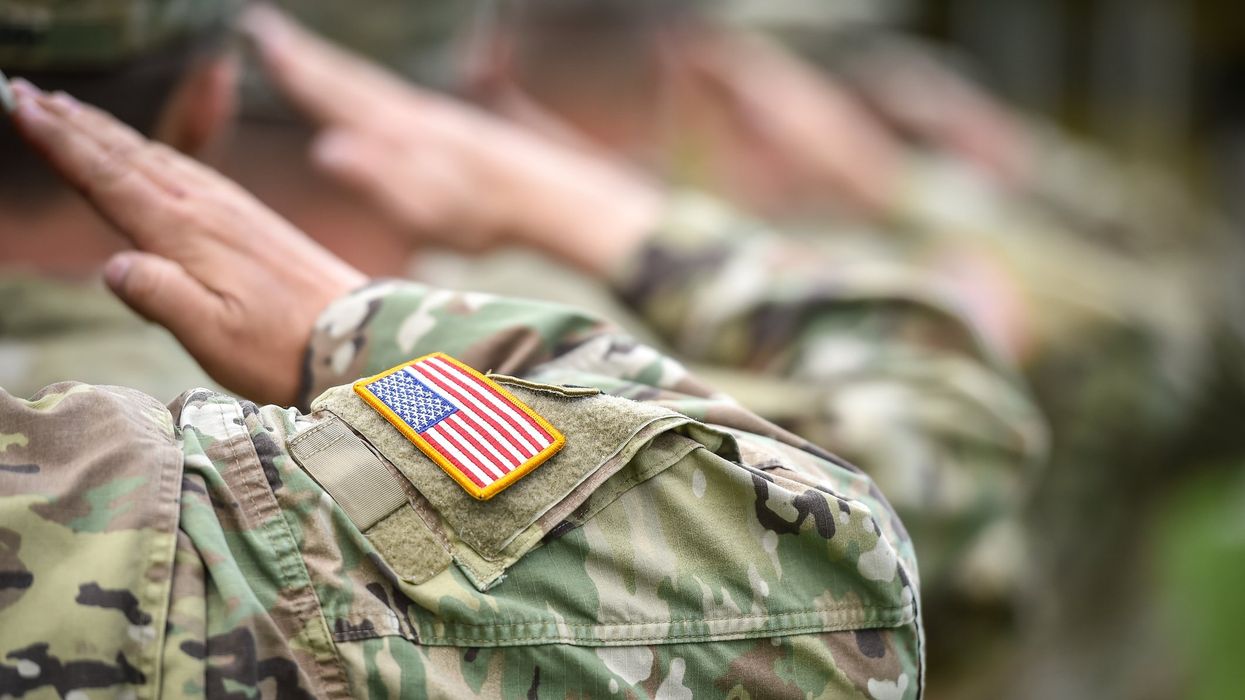Nobody asked for soldiers on their streets. Yet President Trump sent 2,000 National Guard troops into Washington, D.C.—and now he’s threatening the same in Chicago and New York. The problem isn’t whether crime is up or down (it’s down). The problem is that governors didn’t request it, mayors didn’t sign off, and residents certainly didn’t take to the streets begging for troops. Yet here we are, watching as the president becomes “mayor-in-chief,” turning American cities into props for his reality-TV spectacle of power, complete with all the theatrics that blur politics with entertainment.
Federal Power Without Local Consent
D.C. has always been uniquely vulnerable because of the Home Rule Act. The president can activate its National Guard without consulting the mayor. That’s troubling enough, but now Trump is floating deployments in Illinois and New York—states where he has no such authority. The principle at stake isn’t whether troops can reduce crime; it’s whether the federal government can unilaterally occupy a city whose leaders and citizens told it to stay away.
This federal overreach only sharpens the next point: the hypocrisy is so brazen it’s as if Republicans have stopped even trying to conceal it. These are the same politicians who shriek about “tyranny” whenever a Democrat signs an executive order. Think of the recent hair-on-fire theatrics over Obama’s DACA order, or the anguished howls when Biden rejoined the Paris Climate Accord. Yet when their president decides to send troops into cities during peacetime—something no modern Democrat has ever dared—they fall silent. The self-proclaimed guardians of local control and small government morph into cheerleaders for the biggest federal power grab in decades. Apparently, “limited government” only applies when a Democrat is in office.
Civil Society at Risk
Let’s be clear: this isn’t “help.” It’s overreach dressed up as public safety. Troops on the streets erode the principle of local self-rule, turning cities into backdrops for presidential theater. Once normalized, the presence of soldiers in everyday civic life stops feeling extraordinary. Today it’s D.C., tomorrow it’s Chicago, and after that—why not anywhere a president decides the optics are good?
History tells us how badly this ends and why normalizing troop deployments today only increases the risk of repeating those same mistakes. Kent State. Portland. Deployments that inflamed tensions rather than restored calm, leaving communities more fractured than before. And it isn’t just Trump who benefits. Future presidents—Democrat or Republican—will inherit these precedents. By staying silent now, GOP lawmakers are essentially handing unchecked executive power on a silver platter to the executive branch for whoever comes next.
And this isn’t just an American story. Putin deployed Russia’s National Guard to crush protests and reframe dissent as a security crisis. Erdoğan turned Turkey’s public squares into showcases of force during Gezi Park. Duterte blurred the line between policing and military occupation in the Philippines’ so-called “War on Drugs.” The playbook is clear: when leaders use troops as stage props, democracy is what gets trampled.
How Civil Society Should Respond
Faith communities and labor unions have already shown how broad coalitions can resist federal overreach. During the Trump administration’s travel ban, churches, synagogues, and mosques joined hands with airport workers and unions to demand change—proof that civil society has the reach and moral authority to fight back when government power goes too far.
If Congress won’t defend its role, civil society has to. That means:
- Legal and legislative resistance: challenge deployments without consent in court, as civil liberties groups did when federal agents were dispatched to Portland in 2020, and press lawmakers to add real guardrails.
- Community mobilization: peaceful protests, civic forums, and neighborhood organizing, like the grassroots coalitions in Ferguson and Minneapolis, to remind Washington that cities govern themselves.
- Narrative and coalition work: hammer home the obvious—nobody asked for this—while faith groups, unions, nonprofits, and businesses stand together, much like the interfaith and labor alliances that opposed the Muslim travel ban, on the principle that local voices matter.
Recent history shows this is possible. In Portland during the 2020 federal deployments, community organizations and legal advocates worked together to document abuses, challenge them in court, and sustain public opposition. Civil society must be prepared to do the same again.
The Stakes
Once we accept soldiers in the streets as normal, democracy itself becomes abnormal. Local governments fade into irrelevance, federalism shrinks to a slogan, and residents lose any say in how their communities are policed. That’s not “law and order.” That’s command and control—the stuff of Russia and Hungary.
So let’s not mince words: deploying troops into cities that never asked for them is an occupation, not assistance. And if GOP politicians won’t say it because they’re too busy polishing their conservative credentials by attacking wokeness on college campuses, civil society must. If it fails, the precedent of unilateral militarization will harden, leaving future presidents free to bypass communities entirely and putting the foundations of American democracy at even greater risk. Our answer has to be clear: Our streets are not your stage. Our safety, our voice, our choice. If Trump wants a show, he can stage another parade—not occupy our cities.
Robert Cropf is a professor of political science at Saint Louis University.




















Eric Trump, the newly appointed ALT5 board director of World Liberty Financial, walks outside of the NASDAQ in Times Square as they mark the $1.5- billion partnership between World Liberty Financial and ALT5 Sigma with the ringing of the NASDAQ opening bell, on Aug. 13, 2025, in New York City.
Why does the Trump family always get a pass?
Deputy Attorney General Todd Blanche joined ABC’s “This Week” on Sunday to defend or explain a lot of controversies for the Trump administration: the Epstein files release, the events in Minneapolis, etc. He was also asked about possible conflicts of interest between President Trump’s family business and his job. Specifically, Blanche was asked about a very sketchy deal Trump’s son Eric signed with the UAE’s national security adviser, Sheikh Tahnoon.
Shortly before Trump was inaugurated in early 2025, Tahnoon invested $500 million in the Trump-owned World Liberty, a then newly launched cryptocurrency outfit. A few months later, UAE was granted permission to purchase sensitive American AI chips. According to the Wall Street Journal, which broke the story, “the deal marks something unprecedented in American politics: a foreign government official taking a major ownership stake in an incoming U.S. president’s company.”
“How do you respond to those who say this is a serious conflict of interest?” ABC host George Stephanopoulos asked.
“I love it when these papers talk about something being unprecedented or never happening before,” Blanche replied, “as if the Biden family and the Biden administration didn’t do exactly the same thing, and they were just in office.”
Blanche went on to boast about how the president is utterly transparent regarding his questionable business practices: “I don’t have a comment on it beyond Trump has been completely transparent when his family travels for business reasons. They don’t do so in secret. We don’t learn about it when we find a laptop a few years later. We learn about it when it’s happening.”
Sadly, Stephanopoulos didn’t offer the obvious response, which may have gone something like this: “OK, but the president and countless leading Republicans insisted that President Biden was the head of what they dubbed ‘the Biden Crime family’ and insisted his business dealings were corrupt, and indeed that his corruption merited impeachment. So how is being ‘transparent’ about similar corruption a defense?”
Now, I should be clear that I do think the Biden family’s business dealings were corrupt, whether or not laws were broken. Others disagree. I also think Trump’s business dealings appear to be worse in many ways than even what Biden was alleged to have done. But none of that is relevant. The standard set by Trump and Republicans is the relevant political standard, and by the deputy attorney general’s own account, the Trump administration is doing “exactly the same thing,” just more openly.
Since when is being more transparent about wrongdoing a defense? Try telling a cop or judge, “Yes, I robbed that bank. I’ve been completely transparent about that. So, what’s the big deal?”
This is just a small example of the broader dysfunction in the way we talk about politics.
Americans have a special hatred for hypocrisy. I think it goes back to the founding era. As Alexis de Tocqueville observed in “Democracy In America,” the old world had a different way of dealing with the moral shortcomings of leaders. Rank had its privileges. Nobles, never mind kings, were entitled to behave in ways that were forbidden to the little people.
In America, titles of nobility were banned in the Constitution and in our democratic culture. In a society built on notions of equality (the obvious exceptions of Black people, women, Native Americans notwithstanding) no one has access to special carve-outs or exemptions as to what is right and wrong. Claiming them, particularly in secret, feels like a betrayal against the whole idea of equality.
The problem in the modern era is that elites — of all ideological stripes — have violated that bargain. The result isn’t that we’ve abandoned any notion of right and wrong. Instead, by elevating hypocrisy to the greatest of sins, we end up weaponizing the principles, using them as a cudgel against the other side but not against our own.
Pick an issue: violent rhetoric by politicians, sexual misconduct, corruption and so on. With every revelation, almost immediately the debate becomes a riot of whataboutism. Team A says that Team B has no right to criticize because they did the same thing. Team B points out that Team A has switched positions. Everyone has a point. And everyone is missing the point.
Sure, hypocrisy is a moral failing, and partisan inconsistency is an intellectual one. But neither changes the objective facts. This is something you’re supposed to learn as a child: It doesn’t matter what everyone else is doing or saying, wrong is wrong. It’s also something lawyers like Mr. Blanche are supposed to know. Telling a judge that the hypocrisy of the prosecutor — or your client’s transparency — means your client did nothing wrong would earn you nothing but a laugh.
Jonah Goldberg is editor-in-chief of The Dispatch and the host of The Remnant podcast. His Twitter handle is @JonahDispatch.